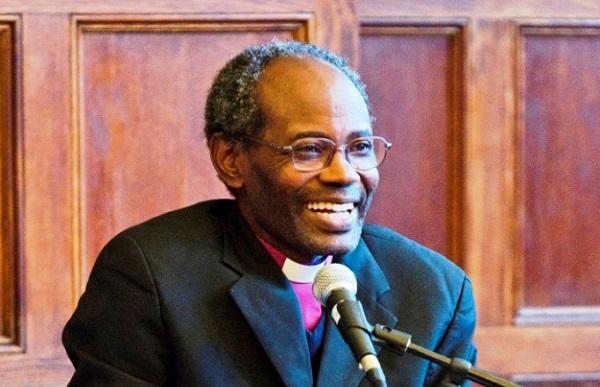Mwita Akiri is Bishop of Tarime, Tanzania and Research Professor of Missiology and African History here at Wycliffe College. On Wednesday, October 31, 2018, he will deliver the Sadleir Annual Lecture - on what has become known as "The Prosperity Gospel" - at 3:00 p.m. in the College’s Reading Room.
Challenges presented by the movement known as “the prosperity gospel,” offer opportunities for churches today.
The prosperity gospel and how it developed
The theology of the prosperity gospel developed in stages. The New Thought movement in late 19th century was the first major stage in the development of prosperity theology. In this stage, the emphasis was on the power of the mind that makes a person a partaker of God’s creationist power. The claim was that this creationist power unleashed material blessings.
The Faith movement was the second major stage. It taught that substitutionary atonement secured spiritual legal rights and privileges, including freedom from sickness and poverty (especially if one followed a spiritual law of positive confession). It further emphasized that the Bible is a contract between God and humans. Indeed, God is faithful to His promises of security and prosperity as long as believers fulfil their part of the contract.
The post-war period of the 1940s and 1950s revivals within the Pentecostal movements in America took the prosperity gospel to its third major stage, namely the emphasis on healing. Deliverance (apparently from generational sins) became a prominent part of the teaching and remains so today. Victory or breakthrough is guaranteed, providing that all the spiritual laws are followed to the letter.
The prosperity gospel today
A socio-economic analysis of prosperity gospel churches shows that most are non-denominational and urban-based. They draw their membership from the urban middle class, especially in the West, and from both the well-to-do and the urban poor in many parts of the Global South.
In terms of practice and method, many prosperity gospel preachers use televangelism to reach masses as well as networks of publications, seminaries, and mentorships. The use of the so-called miracle objects such as “anointed” oil, water, clothes (especially handkerchiefs), and food products such as rice is common. More often than not, such objects are sold to the faithful at high prices.
Challenges and opportunities
The following are some of the challenges and opportunities that the prosperity gospel presents to churches worldwide. The understanding of Christology, especially in relation to healing and material prosperity is an issue. Does Jesus still heal people today? Is suffering a curse or part of the Christian life? Should Christians accept poverty and disease as a norm especially in places where economic underdevelopment is greater? What is the role of the church that does not want people to be tricked into giving money to one preacher in exchange for promises of good health and other material blessings?
These questions or challenges are particularly important especially when we know that the prosperity gospel teaches that lack of healing is a consequence of lack of faith, and poverty is a consequence of lack of adherence to the rules of giving, namely failure to sow in abundance. The wealth enjoyed by most prosperity gospel preachers, the promotion of personality cults, and the idolatry of money appear to bother only outsiders.
Security matters. In most parts of the West, good income, savings, and insurance are some of the common ways to ensure security for oneself against unforeseen future perils. In many parts of urban Africa, prosperity gospel preachers have become like diviners and witchdoctors, offering security and guarantees for life challenges whether at work, home, and even in political life.
Such challenges present an opportunity for churches to reclaim the healing ministry of Jesus Christ. There is an opportunity for evangelical Bible-centred teaching that makes disciples of Jesus. Therefore the prosperity gospel is an opportunity for good theological education for the teachers of the faith.





